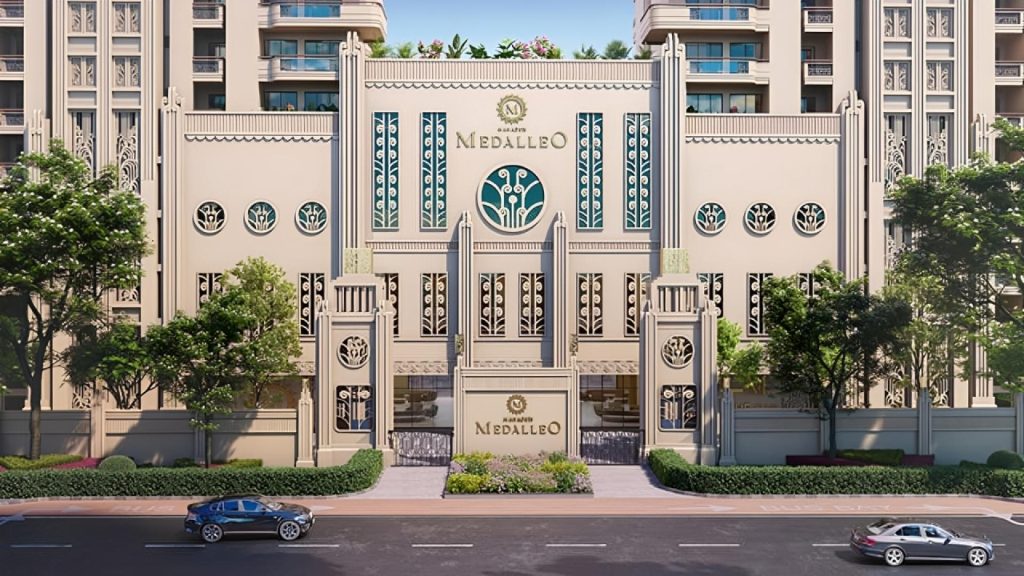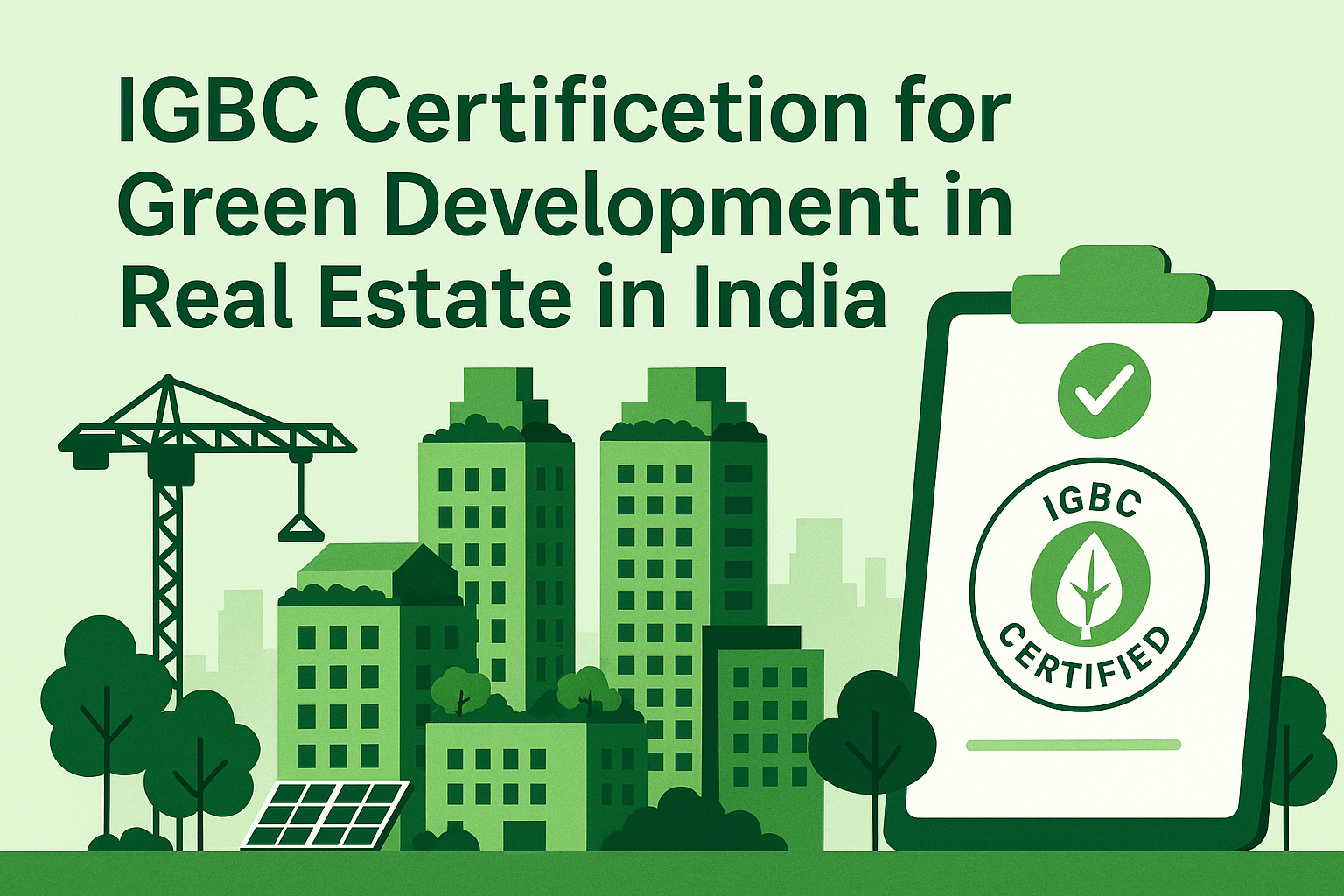More and more homebuyers today care about what kind of environment they’re living in — and that’s where IGBC Green Homes come in. These are homes that are built the smart way: they save electricity, use water wisely, and offer healthier air and living conditions. The Indian Green Building Council (IGBC) has created simple rating systems to help you identify such homes easily. IGBC certification can be owned for luxury apartments, affordable homes, or even a family-friendly society. Nowadays, builders across India are adopting these standards fast for their upcoming and ongoing projects. Living in a certified green building gives home owners many added advantages.
What is IGBC Certification?
Think of IGBC certification as a green stamp of approval. It tells you whether a building is eco-friendly — meaning it saves energy, uses less water, and is built in a way that’s better for your health and the environment.
Who Gives IGBC Certification?
This certification comes from
The Indian Green Building Council (IGBC) is the trusted body that issues this certification under the Confederation of Indian Industry (CII). Moreover, they set standards for what a “green” home should be in India.
Where Does This Certification Apply?
It’s not just for big offices or malls. IGBC applies to residential buildings, apartments, homes, and even schools and townships — anywhere sustainable construction is practiced.
When Is a Building/Apartment Certified?
A project can get IGBC-certified during the design stage or after it’s built — but only if it follows strict guidelines on how the building is planned, constructed, and maintained.
Why Does It Matter to You?
A green-certified home means:
- Lower electricity and water bills
- Better air quality inside your home
- Healthier lifestyle for your family
- Higher resale value down the line
Plus, some projects even get government benefits like tax rebates. It shows the builder has gone the extra mile — not just to finish the project, but to make it smarter and more sustainable.
How Should You Use This Info?
Next time you are house-hunting, don’t just look at the sample flat or brochure. Ask: “Is this IGBC certified?” If it is, you’ll know the builder cares about the long-term — your savings, your health, and the planet.
Even IGBC Green Residential Societies are becoming more popular, especially among people who care about their health and their carbon footprint. The cost of getting IGBC-certified (paid by the builder) depends on the project size, but it’s a small step toward a bigger goal: a cleaner, greener way to live. So if you’re planning to buy a home, ask your builder — “Is it IGBC-certified?”
Because your home should be good for you — and for the planet too.
IGBC certification types
The Indian Green Building Council offers several certificate types based on the design, purpose, and sustainability practices. These certifications are part of India’s push toward green development in real estate. Here are the main IGBC certification types:
1. IGBC Green Homes
For: Individual houses, apartments, villas, and residential townships.
Why it matters: Focuses on water conservation, energy efficiency, and healthier indoor environments in homes.
2. IGBC Green New Buildings
For: Newly constructed commercial and institutional buildings.
Includes: Offices, hotels, hospitals, airports, malls, etc.
Goal: Ensure sustainable design from the planning stage.
3. IGBC Green Existing Buildings (O&M)
For: Operational buildings looking to improve energy and resource use.
Focus: Performance improvement and sustainable operations.
4. IGBC Green Townships
For: Large-scale residential townships or mixed-use developments.
Covers: Planning of water, energy, waste, landscape, and transport infrastructure.
5. IGBC Green Schools
For: Educational institutions (existing or under construction).
Aim: Promote student health, energy saving, and environmental education.
6. IGBC Green Factory Buildings
For: Manufacturing and industrial buildings.
Benefits: Lower operational costs, better indoor air, and resource optimization.
7. IGBC Green Affordable Housing
For: Housing schemes built under budget or government plans (like PMAY).
Emphasis: Low-cost, energy-efficient housing for all income groups.
8. IGBC Net Zero Energy / Water Buildings
For: Projects that aim to consume zero net energy or water over a year.
Ideal for: Forward-looking builders focused on carbon neutrality.
IGBC Certification Categories or Green Building Rating Levels
| Certification Level | Points Required | Meaning |
| Certified | 50–59 points | Meets the minimum green building requirements as per IGBC standards. |
| Silver | 60–69 points | Performs better than basic compliance in key sustainability areas. |
| Gold | 70–79 points | Demonstrates strong environmental performance and resource efficiency. |
| Platinum | 80–89 points | High-level green design with excellent environmental quality and operational performance. |
| Super Platinum (New) | 90–100 points | Next-generation green buildings with exceptional sustainability, launched for Net Zero-focused projects. |
How the Rating is Calculated?
Points are awarded across various sustainability categories like:
- Site selection and planning
- Water efficiency
- Energy savings
- Material usage
- Indoor air quality
- Innovation and design process
Gold and above ratings offer better energy efficiency, lower utility bills, and a healthier living environment. They also show the builder’s commitment to sustainable, long-term planning.

IGBC-Certified Residential Projects in Delhi NCR
- Tata Housing – Primanti (Gurugram)
- Mahagun Group – Mahagun Madelleo (Noida)
- Tata Housing – Raisina Residency (Gurugram)
- Mahindra Lifespace – Mahindra Aura (Gurugram)
- Gulshan Group – Gulshan Dynasty (Noida)
- Conscient Infrastructure – Habitat Residences (Faridabad)
- Godrej Properties – Godrej Astra (Gurugram)
- CRC Group – CRC Sublimis (Greater Noida West)
- Central Park – Aqua Front Towers (Gurugram/Sohna)
Conclusion
Having an IGBC certification means eco-friendly construction through sustainable construction practices that lay emphasis on the use of energy-efficient designs and eco-friendly materials. All green and IGBC-certified residential projects in India stick to strict guidelines to reduce environmental impact. That is why it ensures healthier living spaces and successfully promotes long-term resource conservation.
